Interview with Don Goldberg: A Leica Repair Master
When I looked into who is the best there is at repairing Leicas one name just kept appearing: Don Goldberg. Chat forms were filled with people asking if he is still alive and thanking god when they discover he is. Smatterings of people describe Don’s communication style as atrocious and characterize him as old and curmudgeonly, but one thing was never in question: that he is the best at what he does. After a little work, I got Don on the phone and chatted with him briefly about his practice. The interview is as follows:
Gabe: Hi, this is Gabe. I emailed you last week. I was hoping to ask you a couple questions. Is this a good time to talk?
Don: Yes, I always have time because I'm becoming a secretary now.
Gabe: Oh, yeah? How so?
Don: Well I get 100 emails a day, and I don't even know how many phone calls. I think after this phone call I’m gonna have to take it off the hook, I sort of have to work.
Gabe: Are they all from people just wanting you to fix their cameras or what?
Don: Yes. Yes. It used to be totally different when there were camera stores. Especially when there was no email or only a little bit of it, because I wasn't known. It was so much more interesting. Everybody got sent to Leica they would send them to me.
Gabe: I’m curious about your trade and how long you've been doing this?
Don: How long have I been doing this? Uh, since 1975, after my two-year apprenticeship at a place called Leitz. And I was a fine mechanic. I filed metal for about four months. I made all my tools by hand. So I would say maybe, 1975, even though I cleaned my dad's camera repair shop ever since I was ten years old, until I was 18, the day before I left to go to Germany. But I guess that doesn't count.
Photo of Don’s dad, Norman Goldberg. Image courtesy of Don Goldberg
Gabe: No, that definitely counts.
Don: I wasn't old enough to drink beer legally.
Gabe: But you're old enough to fix cameras, right? So that counts. What was that apprenticeship like? What did they have you doing for those couple of years?
Don: Well, the first part was like a basic training where again, I made all my hand tools by hand. It was very old school. We wore grays smocks, the meister wore white. It was a bit different though than what it used to be, because in my last department, I was in the camera repair department, and an older guy said, “Oh, you're an apprentice, aren’t you? And I said, “Yeah." And he said, “Your meisters, they don't hit you guys anymore, do they?" And I said, “No.” And he said, “You guys have stools you can sit down on, don't ya?” And I said, “Yeah.” So he told me how it was when he was a kid.
Gabe: Yeah, I believe it.
Don: You had to wash the meisters clothes down… oh my gosh, you name it. Anyhow, I went, you know, after my basic training through all the departments at Leitz, you know. All of them. Within a two years span.
Gabe: And what were those different departments?
Don: Oh, you name it. You know, painting, chroming, anodizing, I made camera parts, microscopes, projectors, lenses, binoculars. Name anything Leitz made, I was in those departments.
Gabe: I'm curious about how often you're seeing the same couple of problems with Leicas. How much of your work is repetitive or how often are you stumped by new problems you see?
Don: Oh, I mean, overhauling is completely repetitive. Like, Leica M cameras are repetitive. You can say that again (Don to himself). And every now and then I might see something wrong with a camera or lens I've never seen before. Still to this day like, “Wow, I've never seen that before.”
Gabe: I’m curious about how the business and the clientele have changed because I'm managing a film lab here in New York. This is like a job that I probably could have had 20 years ago and that I probably couldn't have had, you know, ten years ago because of this giant resurgence of film and film photography. Was there a point where things died off for you and then came back?
Don: No, I never died off. Never came back. It's always back.
Gabe: What does your average clientele look like? Is it usually collectors or are people really actively shooting these cameras?
Don: I think that they’re between the ages of 25 and 45. They have a lot of money because they have a job where… well they make money. The perfect word without really saying naughty words would be anal. ANAL. ANALLLL.. anal to the anal point of being anal. And then I have to be more anal than those anal people.
Gabe: That’s… that's what I would assume
Don: Yeah. And I have to be super anal every frickin day. I’ve been teaching my son camera repair for the last two years.
Gabe: Oh great!
Don: And I have to be super anal with him.
Gabe: That's amazing.
Don: Isn't it?
Gabe: What makes someone the best at something like this? I see your name floating around all the time. When it comes to Leica repair, what makes you at the top of your trade?
Don: Uhhh I was always mechanically inclined, and that's why my dad made me go to Germany. He designed the M2 motor back in the early sixties.
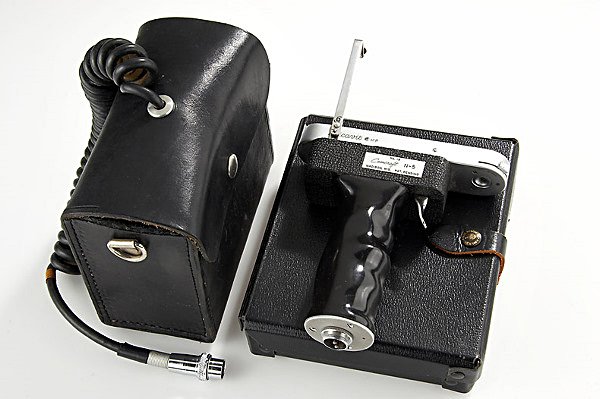
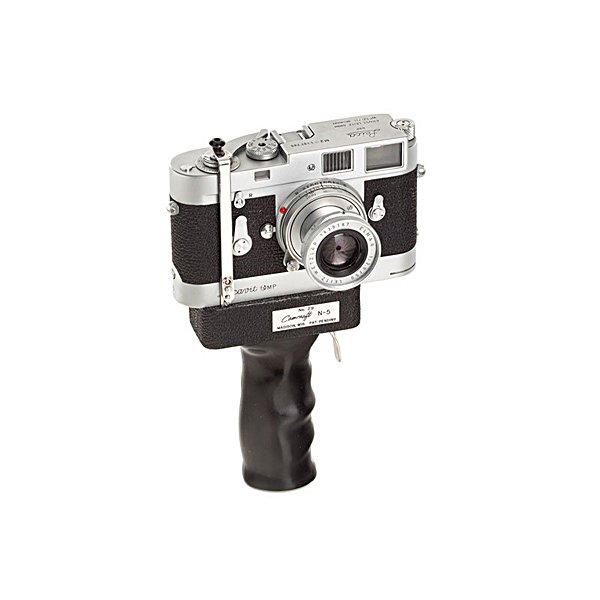
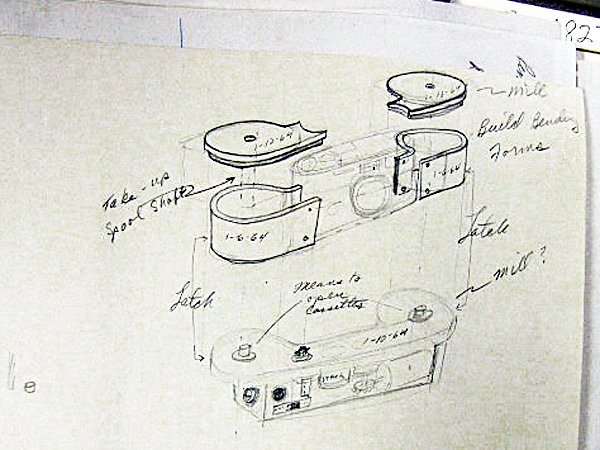
Gabe: Oh, interesting.
Don: So he had kind of an in with Leitz. And instead of going to college, which I wanted to do, and wrestle because I was a good wrestler and I could have gone to almost any college to wrestle, I had to go to Germany. They speak German over there by the way.
Gabe: Mm I’ve heard
Don: The beer is good.
Gabe: I bet. I bet.
Don: It’s a completely different feeling, too. It's a body. Over here, it's more of a head, I think.
Gabe: In terms of culture?
Don: In terms of when you get drunk.
Gabe and Don: (Laughter)
Gabe: Do you find there's something similar between your passion for wrestling and your passion for, you know, fixing cameras? Or are those two totally incongruent things?
Don: They're totally different. Before COVID hit, I was a wrestling coach for the local high school for 29 years. Then COVID hit and I didn't want to go back into a high school every other day.
Gabe: Right.
Don: It was really a good feeling to be working on cameras. And then I would get my wrestling clothes on in, go to local high school, and wrestle. It was a great thing. I think it was mentally a perfect thing to do for me. You get to beat up on a bunch of teenagers.
Gabe: Can only feel good, right? It's interesting that you're teaching your son all this stuff. I'm, always interested in thinking about what's going to be the last generation to hold some of this knowledge. Some of this stuff isn't written down. You know, it’s completely verbal. I’m thinking of people who are really good at something like darkroom technique. That's kind of my reference point, you know. Learning from people who only know what they do from working in the field.
Don: The thing about camera repair right now is that people are trying to fix their own cameras and they louse it up like you wouldn't believe. In fact, it's not water damage or fire or anything like that. It is people tampering with their cameras. They ruin them, and then they mess up the screws. They can't unscrew a screw and then screw it back in to make it look like nobody touched it. Obviously, at the factory, that's what they did. They screw the screws in and then it looks like nobody even touched it. So obviously humans can do that. They can't even do that. I would never even want to tell people how to repair cameras just because of all that crap I see all the time. The Internet is the worst thing for them because somebody all the sudden takes a camera apart and is able to adjust the meter or the shutter. So then he goes online to a video and he thinks he can fix the camera. And he's just an idiot. You see that all the time. I don't even want to look at stuff on the Internet. It's crazy.
Gabe: Everyone wants to feel like they're an expert, and they have a handle on the machine that's in their hands. Or no one wants to admit that someone else might know more than them.
Don: I would never even want to show anybody. You know, if my son wasn't interested in this, I would probably pass away without telling any anybody anything, you know? Because I don't think they even deserve it.
Gabe: (Laughter) The whole of humanity, you mean?
Don: Well, no, just the people that are involved or interested in this kind of work. And then just thinking of what I had to do to get where I am, you know, going to Germany for two years. And well, it was it was a very serious thing to do.
Gabe: I mean, obviously it undermines the work right? If people are telling you, “No I know how to fix this. I watched a YouTube video” it undermines how hard it really is.
Don: Yeah. Yeah. Well the fact is they try to do it and then I'll see the camera and it’s so messed up.
Gabe: Where does your satisfaction come from inside a job like this? What's the feeling when something is fixed? Is it really just day-to-day work for you or is it artistic practice? How do you feel about it?
Don: Well, I'm 68 years old. I started repairing cameras professionally when I was 20. Then I went out on my own when I was 25. Back then I had a business phone in my bedroom, in my kitchen, and in my shop. And then when I got wiser and older, I took the phone out of my bedroom and finally took it out of my kitchen. Now when I'm upstairs, right after I eat dinner, if I hear my phone ringing I could care less. And it's getting more and more like that. Before I would go out of my way to do special things, which I still do, I adapt cameras in such ways, but now I don't feel the same way. I think a lot of people at that age will go out of their way to do certain things and when you get older you get wiser and you think, “I don't want to do that anymore.” I remember cleaning my dad's shop when he was designing the motor and he would be lying on a mattress because he needed a cat nap. I could see his eyes were still open, I could tell he was thinking. I remember one time getting up for school It was like 7:30, and my dad was getting up from his shop. He worked all day and night. That’s what you do when you’re that young. Almost crazy.
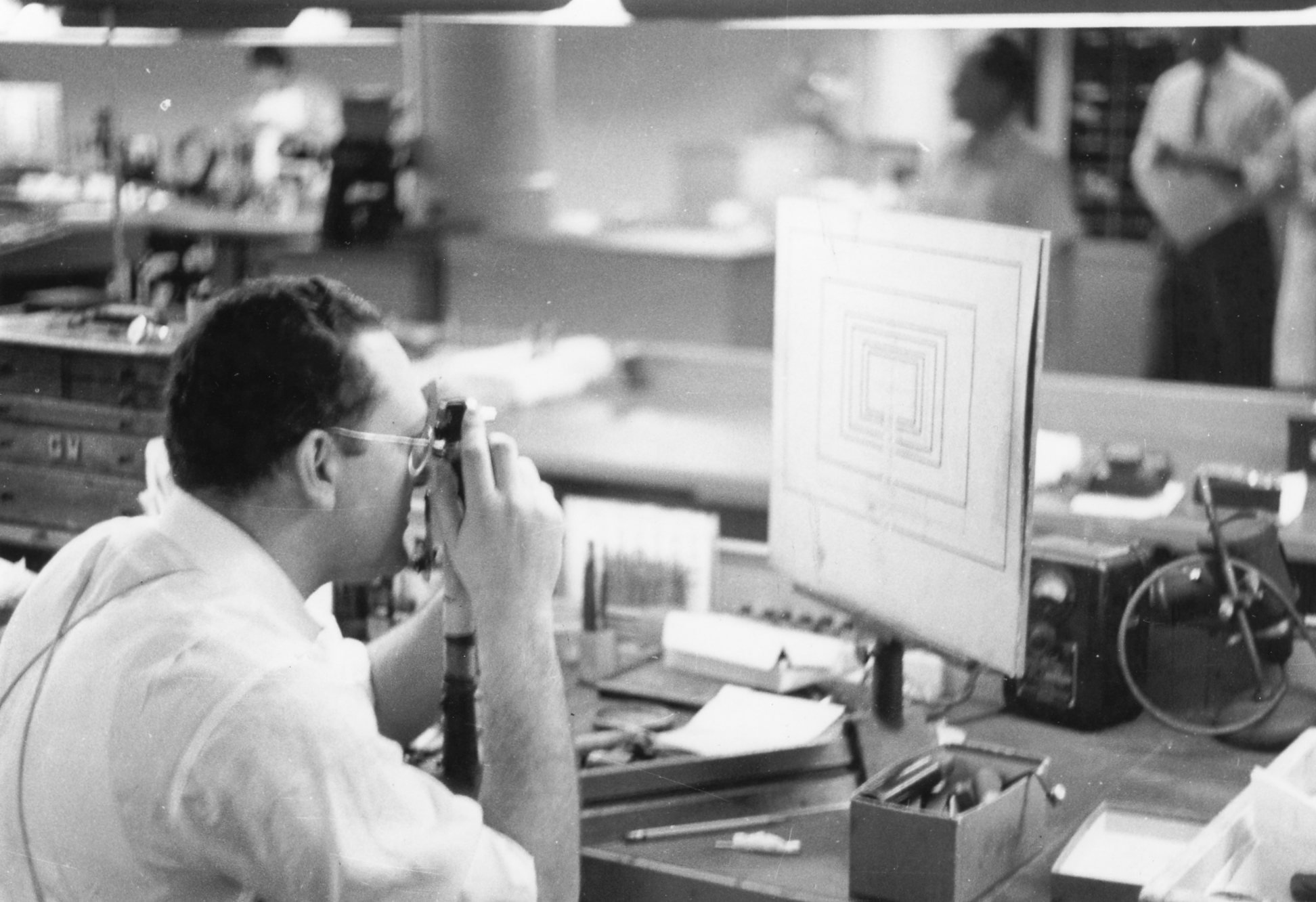
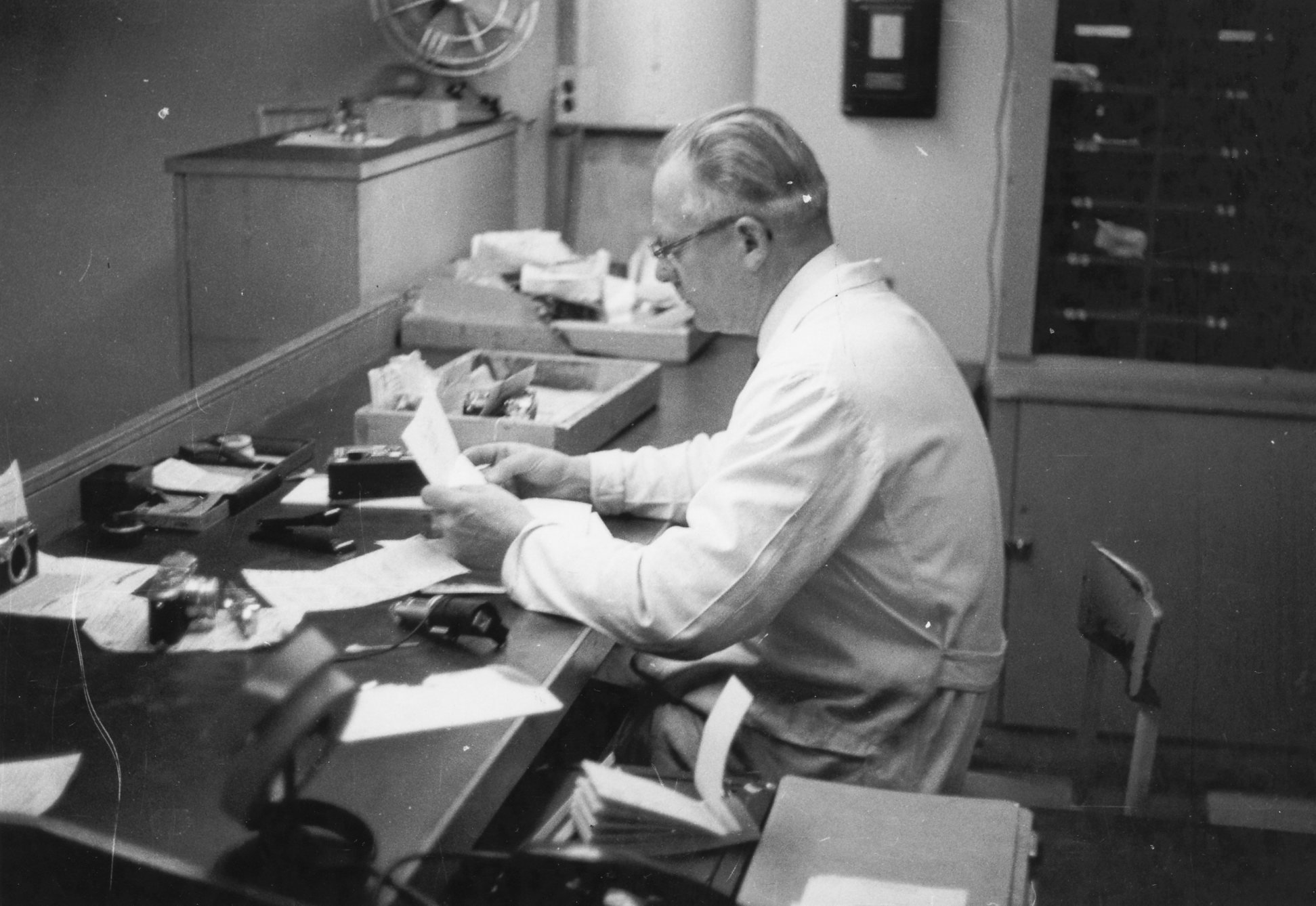
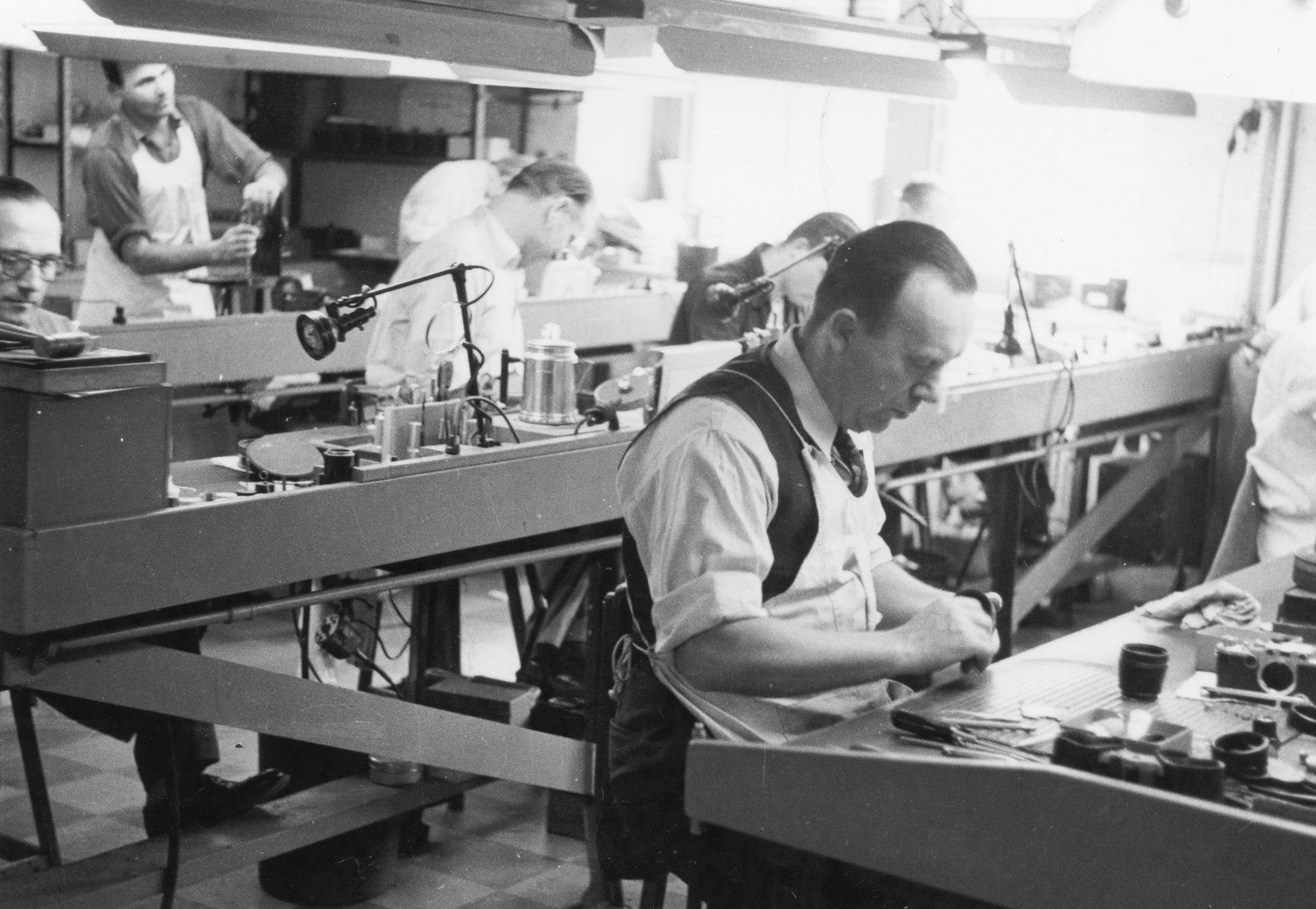
Read more about Norman Goldberg and his work here
Gabe: Well, your priorities change. What was important to you then might not be important to you now. How does day-to-day differ? When you were younger, what did your day-to-day look like when you were repairing and what is your day-to-day look like now?
Don: I used to work 11 1/2 hours. Now I only work 11 hours and 15 minutes.
Gabe: On the dot?
Don: Pretty much. I think it's 3 1/2 less days that I work in the week.
Gabe: That's dedicated. That's a lot of hours. How many days do you work in a week?
Don: Only 6 days… So I'm just curious. Why do you want to know these things?
Gabe: Well, I'm starting to run a blog for our film lab here, and we're just trying to build out a community around these things. I'm super interested in all these analog processes and all these things that, you know, people have worked their whole lives for. I think that's super interesting. I do a lot of hand printing and I always talk to my teacher. He's been hand-printing since the seventies. He has this huge swath of knowledge that has nowhere to go. And I think that's such a shame. So I'm always interested in stuff like this and professions like this. And yeah, it just piqued my interest and I thought you'd be a good person to talk to. I'm glad they're still people who know things. You know, it's important to me.
Browse photography books
Check out Don’s services here


